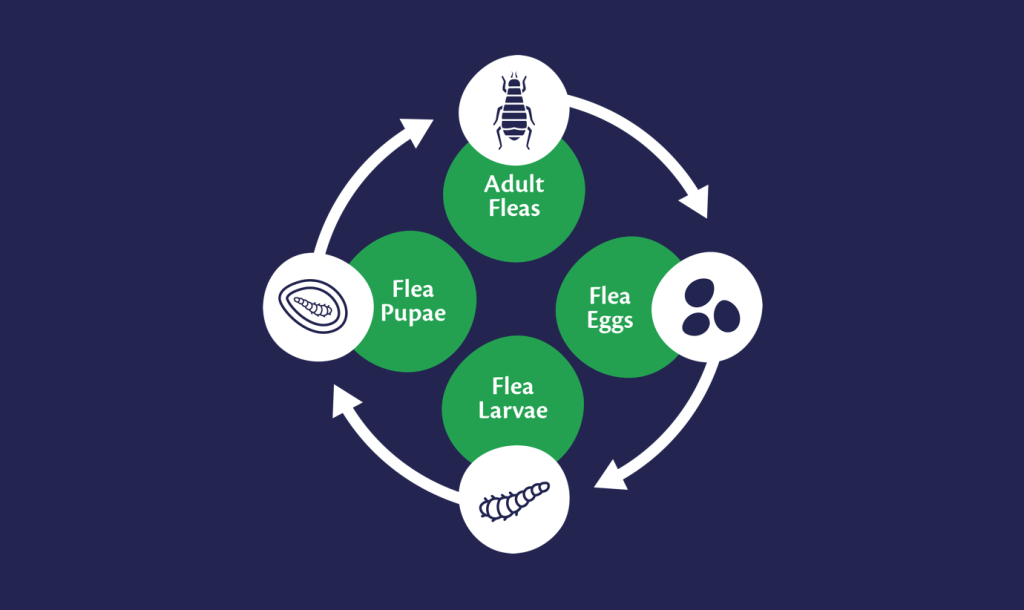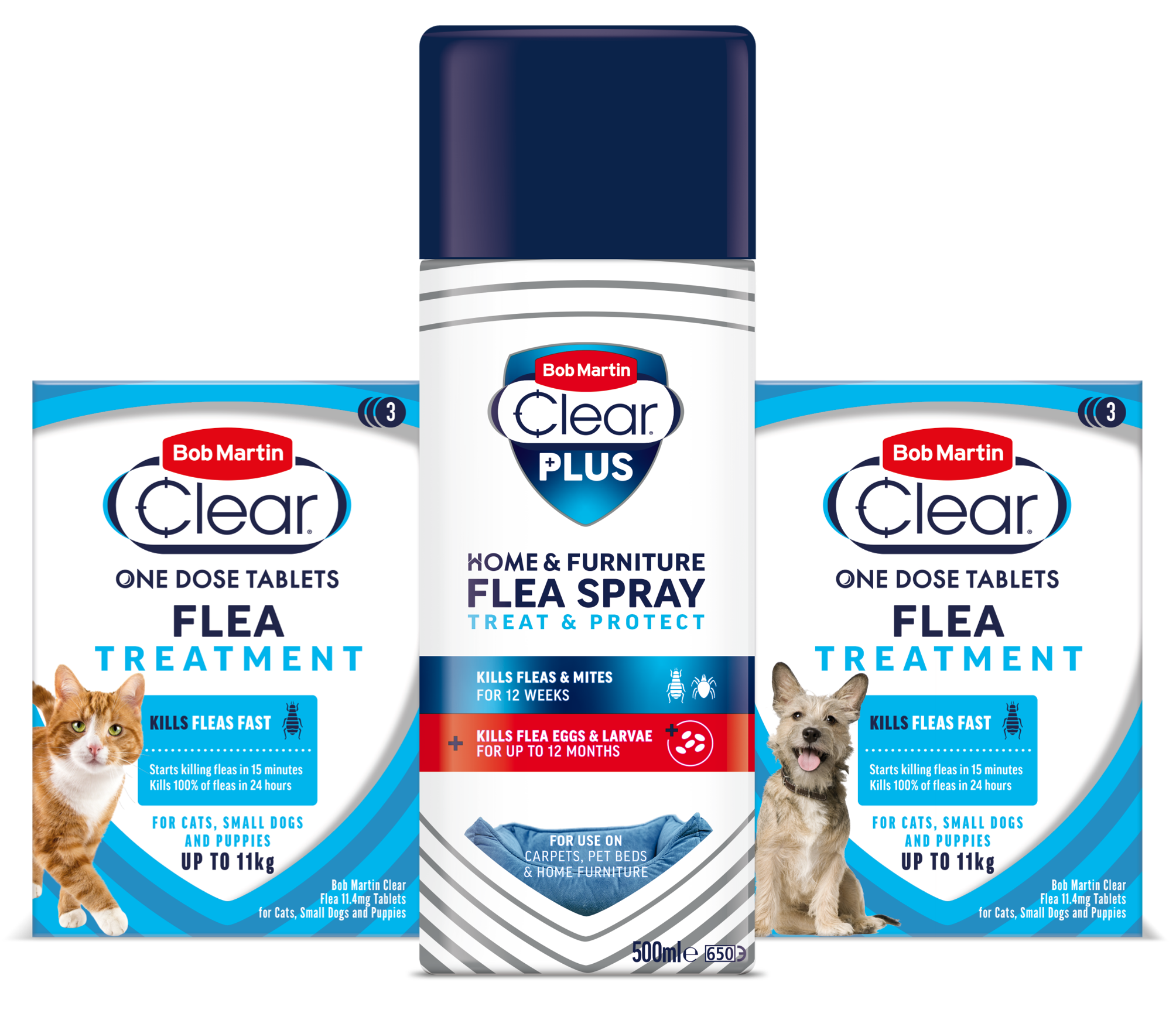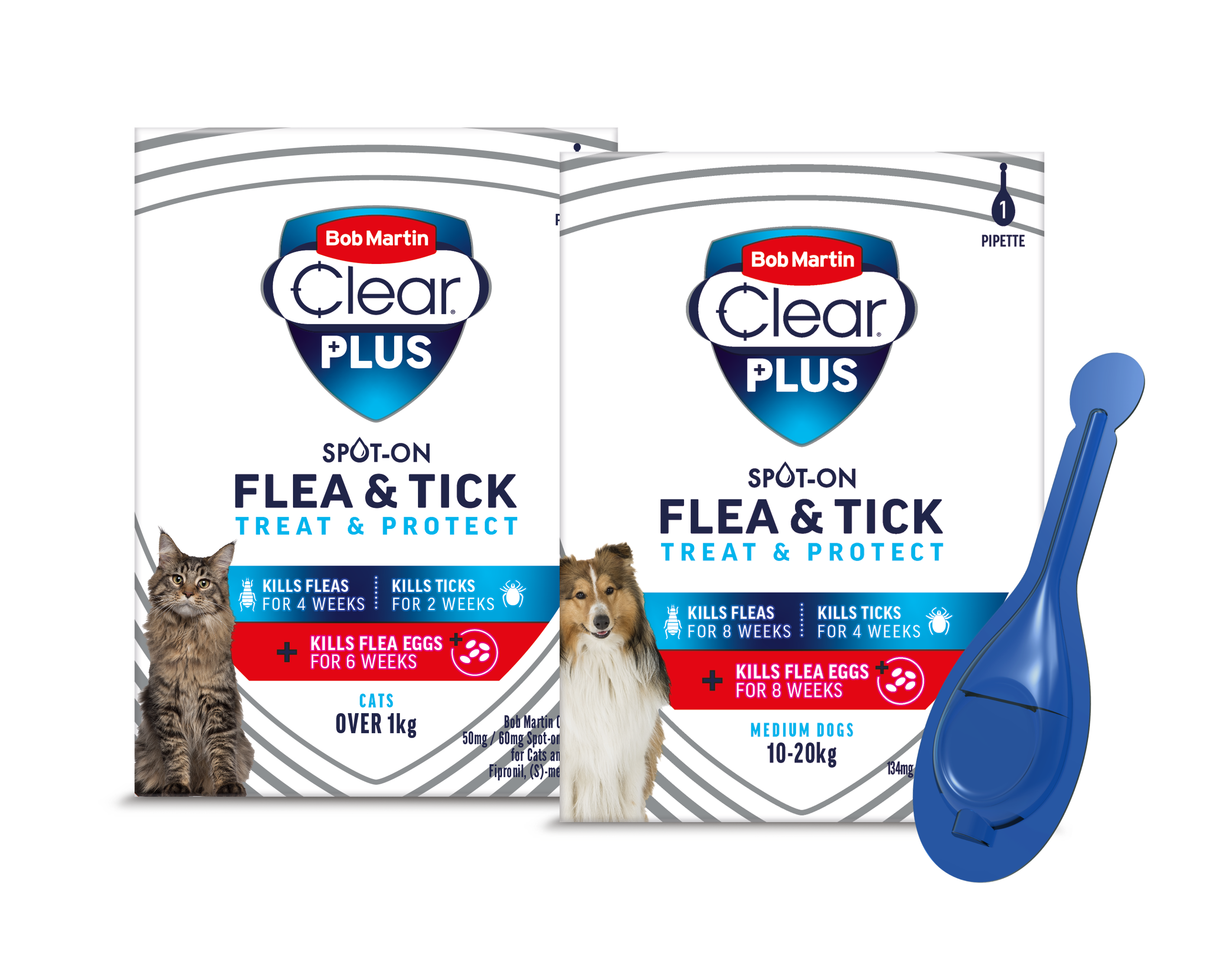Say goodbye to pesky parasites
When it comes to eradicating fleas, ticks and worms, understanding your treatment and prevention options is important.
We know it can be a little daunting trying to figure out exactly what your pet needs, especially if you’re a first-time pet owner. The question you need to ask yourself is: ‘Does my pet need to be treated for a current infestation, or protected against a future one?’.
A flea’s lifecycle
Fleas can be particularly persistent and can easily grow into a huge problem for your pet, your home and you. It’s important to know what products to use to not only get rid of adult fleas, but to kill fleas at each stage of the lifecycle to prevent re-infestation!

Flea & Tick Treatment
On Pet
Why it’s important to treat your pet
It’s really important to treat your pet, because:
- Fleas lead to worms. If you’ve got a flea infestation, chances are your pet will have likely contracted a tapeworm from them too because fleas carry worms
- Fleas carry disease. They’re not just an itchy nuisance; they can result in some nasty conditions too, such as Flea Allergy Dermatitis
- Fleas can cause anaemia. In young animals, a severe flea infestation can cause anaemia
- Ticks can cause Lyme Disease. An infected tick can spread this nasty disease, which if left untreated, can be fatal


In the Home
The importance of treatment when it comes to fleas and ticks in the home
Most pet owners know they should treat their cat or dog for fleas and ticks on a regular basis. But did you know that the fleas you see on your pet only makes up 5% of the flea infestation? The remaining 95% are in the home!
Making sure you treat both your pet and your home is a vital step, because it will ensure you treat the whole problem and fully eradicate them.
To provide complete protection for your pet and your home, your flea treatments need to include two ingredients: an insecticide to kill the adult fleas and an Insect Growth Regulator (IGR) which targets flea eggs and flea larvae.
Step 1: Treat your pet for fleas with a fast-acting treatment
Step 2: Treat your home by vacuuming, washing your bedding and spraying with preventive treatments.
Bob Martin’s Clear and Clear Plus range of spot ons and tablet treatments for your pet, alongside Bob Martin Clear Home Sprays will kill fleas and flea eggs, ticks and dust mites, protect your home for up to 12 months by breaking the flea’s lifecycle.
Bob Martin Clear Plus not only kills adult fleas and ticks, but also kills flea eggs on your pet and in the immediate surroundings, to stop them developing into larvae, pupae and then back into an adult flea again.
Treatments for your pets, used alongside the Bob Martin home range, provide a holistic solution for any flea and tick problem you could face.
Treatment Products
My pet already has fleas or ticks:
We suggest choosing a product from the Bob Martin Treatment range:
- To kill fleas and ticks on your pet and prevent their reoccurrence.
- To kill flea eggs, larvae and adult fleas from home.
- To prevent from re-infestation

Flea & Tick Prevention
On Pet
Why it’s important to prevent
The prevention range repels fleas but does not kill them – these are not to be used if your pet already has fleas, but rather as a preventive method.
Used at the right time, treatment and prevention methods make sure fleas don’t return!


In the Home
If your home and your pet aren’t infested with fleas, and you (quite rightly) want to keep it that way, you should then use our Bob Martin Clear Prevention range:
- Repels fleas and ticks throughout the year
- Used for both pet and home
- Pesticide free and made with all natural ingredients
- Provides pet & home protection throughout the year
What’s the difference between a repellent and an insecticide?
- A repellent prevents critters and deters them… it doesn’t kill them.
- Whilst an insecticide will kill the fleas/ticks, so you should use this when you’ve got a problem, to quickly get rid of a burden.
Fleas thrive best in warm, humid environments, that’s why the warmer months are known as the ‘flea season’ – so called due to the boom in the number of the critters.
And although spring and summer will bring an explosion in numbers, they can continue to live inside our homes throughout the year, due to our warm, centrally heated houses. That’s why it’s really important to treat at-need and prevent throughout the year.
Prevention Products
My pet does not have fleas or ticks and I want to keep it this way:
We would suggest using a product from our Bob Martin Clear Prevention range:
- Can be used throughout the year in prevention.
- Our non-insecticidal repellent range is made with Margosa extract and Lavandin Oil, used to push back fleas and ticks.
- The range includes: flea shampoo, spot on, flea and tick collars and flea and tick spray for your pet and home.
- The prevention range prevents flea infestation but does not kill fleas – these are not to be used if your pet already has fleas as a curative method but as a preventive method.


